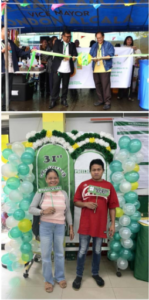
Senator Alan Peter Cayetano on Tuesday called on the government to reassess its programs and consider new approaches to tackle the rising rate of stunting among Filipino children, stressing the importance of early intervention in securing the nation’s future.
“This is a discussion with the whole of government. The DSWD (Department of Social Welfare and Development) plays a significant role, but I’d like to ask if we can try something in 2025 to really lower the numbers,”Cayetano said during the deliberation on November 19, 2024 of the proposed 2025 budget for DSWD.
Citing alarming data that one-third of preschool-aged Filipino children are at risk of stunting, Cayetano drew attention to the long-term consequences of malnutrition such as developmental delays, chronic illnesses, and limited economic opportunities in adulthood.
He said despite the increased funding for feeding programs and health initiatives, the impact in reducing stunting remains minimal.
“In the past few weeks we’d looked at all departments. Sa lahat ng usapan na ‘yan you are basically talking about two-third of our future population, because if stunted ang one-third [of children], hindi rin nila mapapakinabangan ‘yan (government programs),” he added.
Cayetano urged the DSWD to reassess existing programs like the Pantawid Pamilyang Pilipino Program (4Ps) and explore how it could better monitor and support families with malnourished or at-risk children.
He also called for the agency to identify underfunded programs or pilot new initiatives in the areas most affected by stunting.
“Is there any other program which is there but is underfunded that the DSWD can focus on or launch to prevent stunting?” he said.
In his interpellation, Senator Cayetano also raised concerns about other vulnerable groups such as orphans and the elderly. He proposed a model similar to 4Ps where funding is tied to measurable outcomes like nutritional improvement for orphans.
For the elderly, Cayetano called for “true no-billing” services under PhilHealth to reduce the burden on the DSWD, allowing the agency to focus resources on better food and accommodations for elderly residents in care homes.
The senator also called on agencies such as the Department of Health (DOH), Department of the Interior and Local Government (DILG), and local government units (LGUs) to collaborate with the DSWD in crafting more targeted and effective policies.
“We all agree that prevention is better than cure. Marami sa stunted, sila rin ang future PWDs. The more that we take care of the stunting now, the less we have to spend on the interventions later on.” he said.



